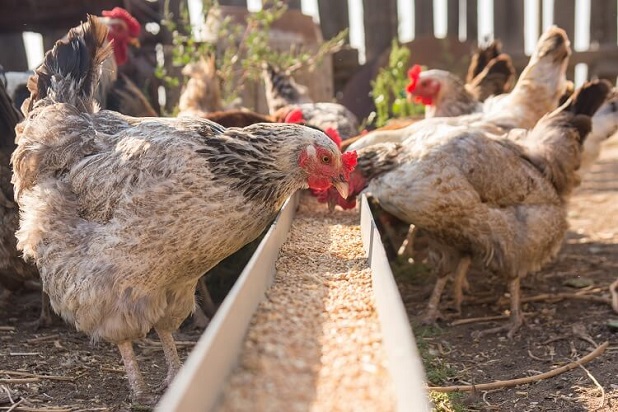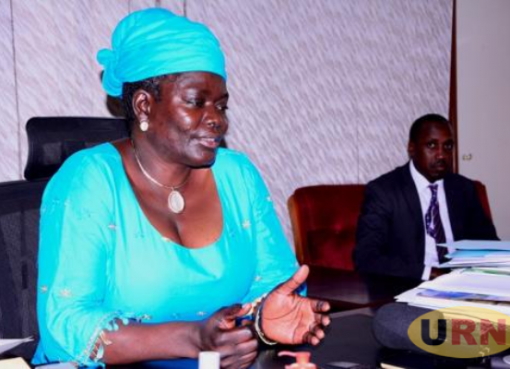Operation Wealth Creation-OWC beneficiaries in Sembabule district are decrying the rising cost of animal feeds which is threatening the sustainability of their projects.
The affected beneficiaries include those that ventured into the poultry and piggery projects, which were initiated from the inputs distributed by the government through the Operation Wealth Creation program.
Juliet Ndagire, the Lwebitakuli Sub County Female councilor for Manyama parish says that the increasing costs of feeds and other supplements are rendering both the poultry and piggery projects unviable hence forcing many people out of business.
Ndagire who ventures in poultry indicates that the cost of maize bran and broken maize which are the main components of the chicken and pig feeds has gradually been increasing hence becoming unfordable to the farmers.
According to her, the price of broken maize is now at 1900-2100 shillings rising from 1,300 shillings while maze bran has gone to 1,200 from 750 shillings per kilogram.
She argues that besides the high costs, the dealers are also compromising the quality of the feeds which affects the performance of the animals in terms of growth and productivity in the laying chicken.
Ndagire prefers that government further intervenes by supporting the farmers with subsidized feeds as a strategic intervention to ensure the sustainability of the OWC projects in the community.
“The steadily increasing costs of inputs are threatening many of the projects in this area, yet our people had embraced the program, so we are afraid that people are already losing morale because the project can longer fetch them the intended money,” she says.
Muhammad Ssesimba, another farmer who benefited from OWC Chicks argues that besides the maize products that are scarce on the market, they are also struggling to access feed supplements whose prices have been increasing.
According to him, the situation has also given room for unscrupulous dealers of poultry and animal feed dealers who are supplying farmers with substandard inputs, hence further frustrating the projects’ progress.
He explains that he had borrowed 2 million shillings from the local Savings and Credit Cooperative society-SACCO and invested in the poultry project, but the money has been used up before chickens are due for egg production. “I’m actually afraid that I may fail to service that loan as expected,” he indicates.
Steven Ssenyonjo the Lwebitakuli sub county Chairperson says as leaders who are partly responsible for monitoring the OWC programs in the community saying they are aware of the beneficiaries’ frustrations, indicating that they are pleading with the program implementers to lure the government to provide more support in terms of feeding.
But Colonel Hassan Samba, the Operational Wealth Creation Coordinator in the greater Masaka Sub region says that as a remedy, they are sensitizing farmers on the use of substituted feeding methods for their animals as opposed to over-depending on the manufactured feeds that are currently expensive.
According to Col Samba, the program chose highly resilient animals and chicken varieties that are capable of enduring tough conditions including feeding on human food residues.
–URN





